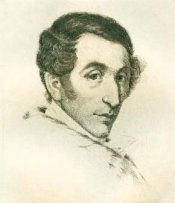
02 Mar 2006
WEBER: Oberon
Oberon, Romantic opera in three acts
Music by Carl Maria von Weber. Libretto by James Robinson Planché after Oberon by Christoph Martin Wieland and the 13th-century French romance Huon de Bordeaux
Andromaca: Dramma per musica in three acts.
Ermione: Azione tragica in two acts.
Ippolito ed Aricia: Tragedia in five acts.
Idomeneo: Opera seria in three acts.
Paride ed Elena: Dramma per musica in five acts.
Orphée: Opera in four acts.
Music composed by Christoph Willibald Gluck (arranged by Hector Berlioz, 1859). Libretto by Ranieri de' Calzabigi
Alceste, ou Le triomphe d’Alcide: Tragédie en musique in a prologue and five acts.
Alceste: Tragédie opéra in three acts.
Medea: Melodramma tragico in three acts.
Oedipe à Colone: Tragédie lyrique in three acts.
Elektra: Tragedy in one act.
Fedra: Dramma per musica in two acts.
Les Troyens: Grand opéra in five acts.
Die Meistersinger von Nürnberg: Music drama in three acts.
Ariadne auf Naxos, Oper with a prologue and one act. Music composed by Richard Strauss. Libretto by Hugo von Hofmannsthal.
Der Schauspieldirektor [The Impresario], Singspiel in one act, K486.
Divertimento teatrale in one act.
Andrea Chénier, an opera in four acts.
La figlia del reggimento [La Fille du régiment (‘The Daughter of the Regiment’)], Opéra comique in two acts.
L’elisir d’amore, Melodramma giocoso in two acts.

Oberon, Romantic opera in three acts
Music by Carl Maria von Weber. Libretto by James Robinson Planché after Oberon by Christoph Martin Wieland and the 13th-century French romance Huon de Bordeaux
Streaming Audio
First Performance: 12 April 1826 at Covent Garden, London
Principal Characters:
| Oberon | Tenor |
| Titania | Actor/Dancer |
| Puck | Mezzo Soprano |
| Sir Huon Of Bordeaux | Tenor |
| Sherasmin | Baritone |
| Rezia | Soprano |
| Fatima | Mezzo Soprano |
| Two Mermaids | Mezzo Soprano |
| Droll, Caliph Haroun Al Rachid, Namouna, Babekan, Abdallah, Almanzor, Roshana and Charlemagne | Spoken Roles |
Time and Place: Ninth Century France, Persia and North Africa.
Synopsis:
Oberon and Titania have quarrelled over the matter of male or female inconstancy and will be reconciled when a couple constant through misfortune can be found. The Emperor Charlemagne has ordered Sir Huon of Bordeaux to travel to Baghdad. There he must kill the man on the right hand of the Caliph and kiss and marry the Caliph's daughter. Sir Huon sees the Caliph's daughter, Reiza, in a dream, and is given by Oberon a magic horn to summon necessary aid and a magic goblet, that will burn the lips of the impure. By the Tigris Sir Huon saves the Saracen prince Babekan, betrothed to Reiza, from a lion. Babekan drinks from the goblet, his lips are burned and he attacks and is repelled by Sir Huon. In Haroun al Raschid's palace Reiza wants to avoid marriage to Babekan and has seen her rescuer in a dream. Sir Huon arrives. In the second act, in the Caliph's palace, Reiza is saved from marriage to Babekan, who is killed, while the court is paralysed by the sound of the magic horn. Sir Huon and Sherasmin, with Reiza and Fatima, escape by ship, which is wrecked. Reiza is abducted by pirates and Oberon tells Puck to take Huon, bound and unconscious, to the house of Ibrahim in Tunis, where the third act opens. Now Sir Huon, escaping from imminent execution through the blowing of the magic horn by his squire, rescues Reiza from the harem of the Emir. Their trials now over, the couple is transported to the palace of Charlemagne by Oberon and Titania and the opera ends with praise of the constant Sir Huon and Reiza.
[Synopsis Source: Naxos]
Click here for complete libretto (English).
Click here for complete libretto (German).
Click here for the score of the overture (Scorch plug-in required).
iTunes Users: Right click here and save playlist. Then import into iTunes.